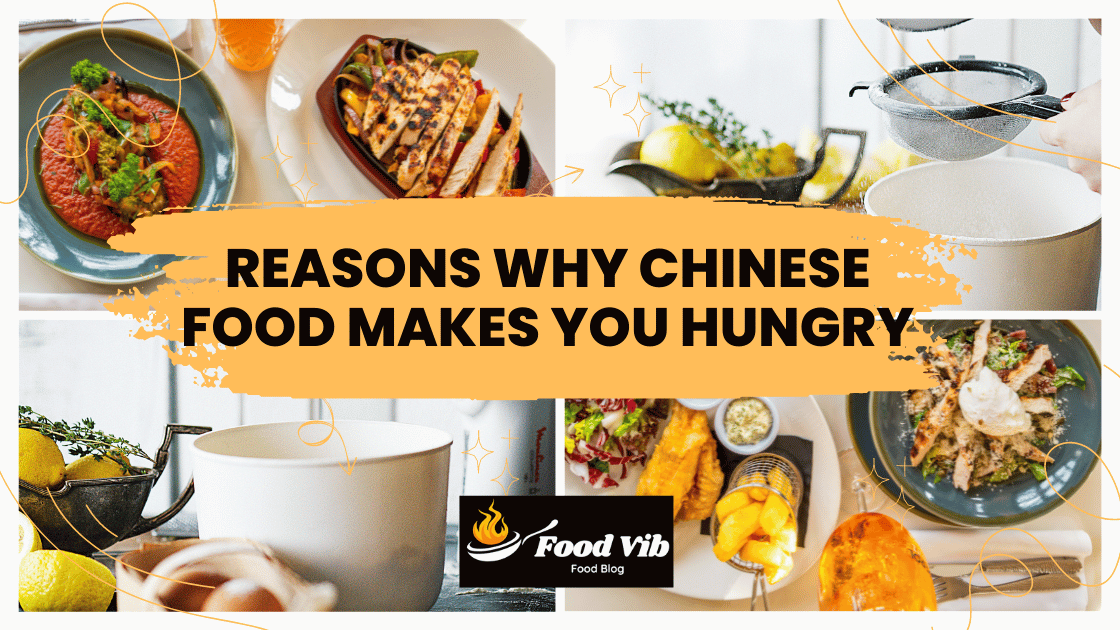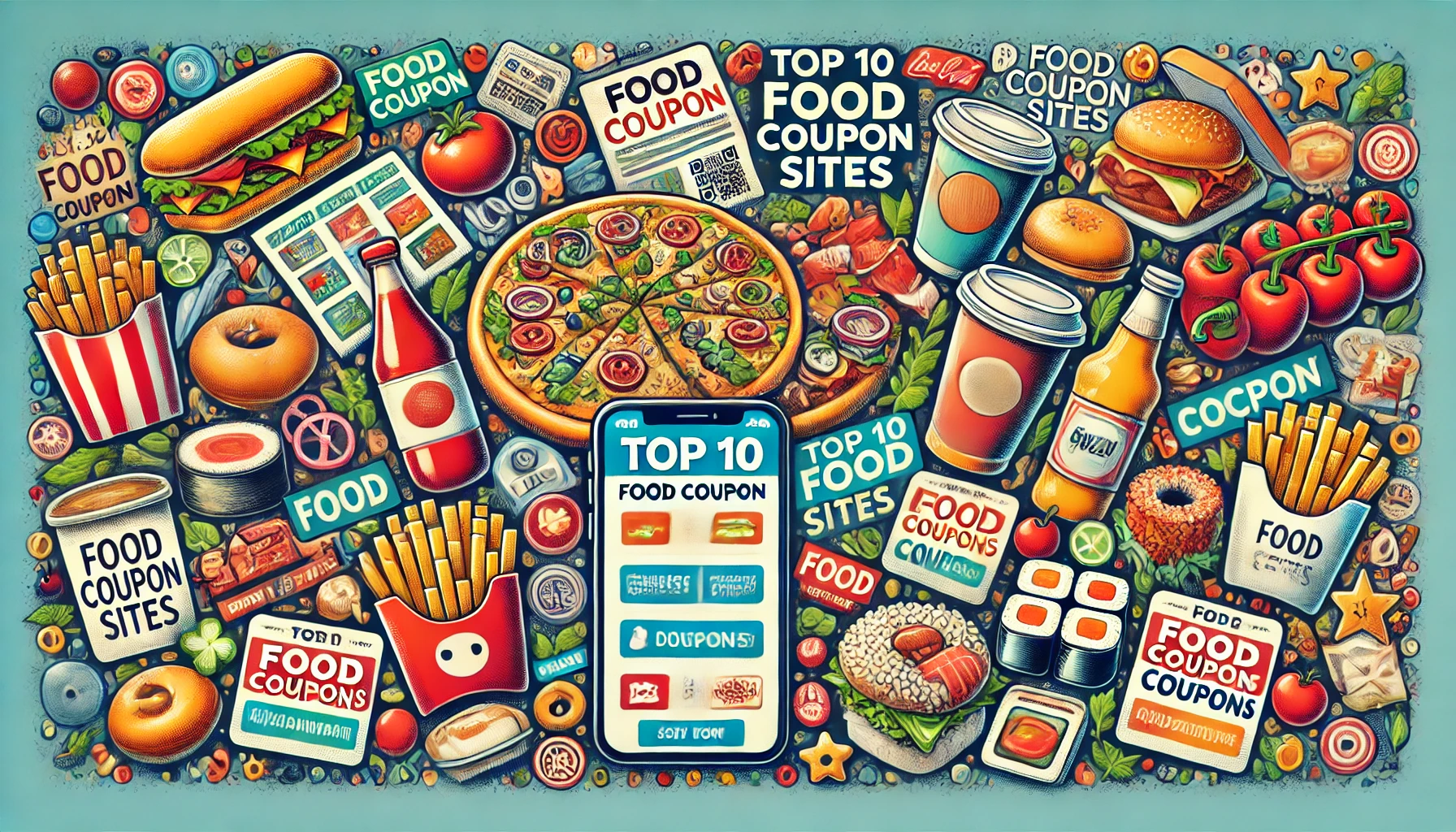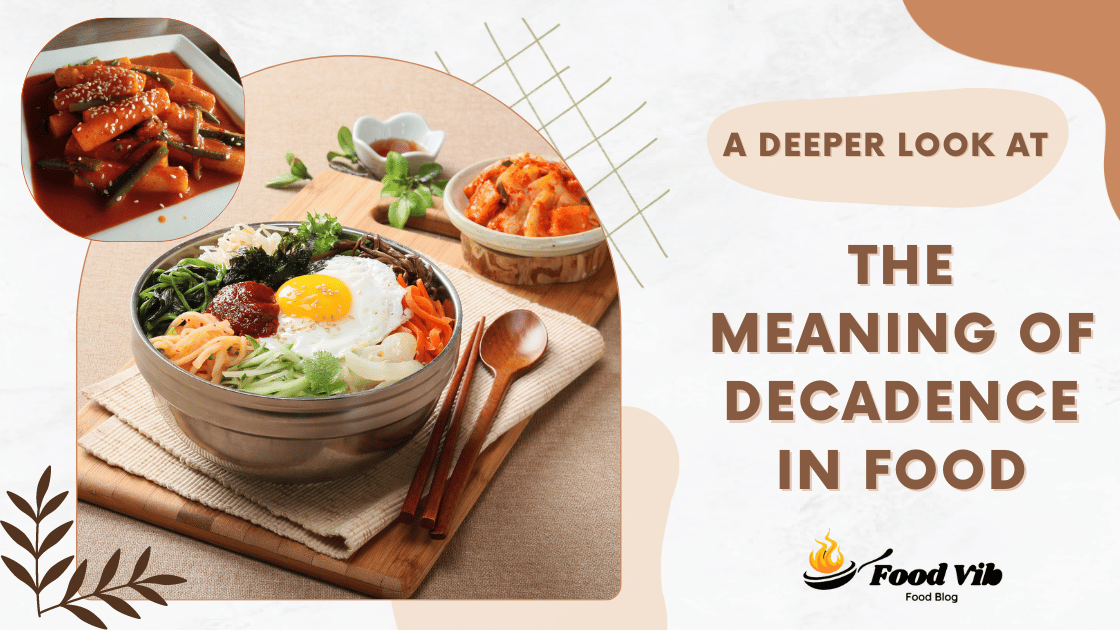The Surprising Reasons Chinese Food Makes You Hungry

Chinese cuisine has the power to satisfy our appetites for a variety of reasons, some of which may surprise you. One explanation is that Chinese cuisine often has a high salt level, which may lead to food cravings. The diversity of tastes and textures found in many Chinese cuisines is another factor, since they may pique our interest and leave us craving more. Furthermore, it has been suggested that some Chinese dishes that contain MSG (monosodium glutamate) enhance hunger. Finally, sharing Chinese cuisine with friends and family and other social aspects might exacerbate feelings of hunger. Therefore, don’t be shocked if, after indulging in some delicious Chinese cuisine, you find yourself feeling even more peckish.

The Surprising Reasons Chinese Food Makes You Hungry
Few cuisines in the vibrant realm of gastronomic pleasures engage the senses quite like Chinese cuisine. Beyond its enticing smells and fragrant spices, the components have an intriguing interaction that may leave you feeling surprisingly peckish. Come along on a taste adventure with us as we explore the fascinating factors that contribute to the particular way that Chinese cuisine stimulates your hunger.
Umami Unveiled: The Fifth Taste
The Umami Sensation
Chinese food is well known for its skill in balancing the five basic tastes: umami, sweet, sour, bitter, and salty. Often known as the savory or meaty flavor, umami is enhanced in many Chinese recipes by adding ingredients such as fermented black beans, soy sauce, and MSG (monosodium glutamate). Your taste receptors are treated to a melodic symphony by this exquisite combination, which leaves you wanting more.
Culinary Artistry: A Visual Feast
The Art of Presentation
Chinese chefs create visually gorgeous masterpieces with every meal they prepare, elevating their trade to an art form. Chinese food presentation excites the senses of sight as well as taste, from the vivid colors to the careful placement of components. Research indicates that aesthetically pleasing food increases one’s urge to eat; this is known as the “eye-gobbling” effect.
Complex Flavors, Simple Ingredients
The Alchemy of Chinese Spices
A vast array of spices and herbs, each adding to the richness of tastes, are hidden away in Chinese kitchens. Consider Szechuan food, which is well-known for its daring and spicy dishes. The addition of numbing Szechuan peppercorns, garlic, and ginger leaves your tongue feeling tingly, leaving you wanting more of its unique tastes.
Eating Rituals: A Social Affair
Communal Dining
Chinese food is often consumed around a table in large groups with friends and family as they enjoy a wide variety of dishes. In addition to promoting a feeling of community, dining in this manner offers a range of tastes in a single meal. Sharing tiny bits with others makes eating more enjoyable overall and increases appetite.
The Role of MSG: Debunking Myths
MSG Demystified
In contrast to popular belief, monosodium glutamate (MSG), a prevalent component in Chinese food, is not the evil food additive that is sometimes associated with it. MSG adds a gratifying “umami” flavor to food, enhancing its savory flavor. Several scientific investigations have refuted the myths associated with MSG, confirming both its safety and its beneficial effects on taste perception in general.
Satiety Signals: A Culinary Conundrum
The Paradox of Fullness
Chinese cuisine is tasty, but you may be surprised at how satiating it can be. Umami, aesthetic attractiveness, and group eating together might have an equivocal result. Even when you’re physically full, the complex interaction of tastes and the overall pleasure of the meal leave you wanting more.
Must Read: The Devastating Impact of Portuguese Food
Ever Wondered Why You Get So Hungry After Eating Chinese Food?
Have you ever wondered why, after enjoying a delicious Chinese lunch, you feel like you’re immediately hungry? Beyond simple gastronomic satisfaction, the enigma behind this phenomenon reaches into the intriguing realm of gastronomy and the complex ways in which our bodies react to different types of food. In this piece, we’ll examine the science behind post-Chinese food cravings and provide the trade secrets that contribute to this cuisine’s exceptional satisfaction.
The Umami Factor
Umami: The Fifth Taste
Umami, often called the “fifth taste,” is a key component in the enticing flavor of Chinese food. This is a flavorful sauce that is plentiful in meals made with fermented black beans, soy sauce, and different broths. In addition to enhancing the flavor profile overall, the umami taste piques your appetite and makes you want more.
The Role of MSG
Debunking Myths About MSG
Myths and misunderstandings around monosodium glutamate (MSG), a prominent component in Chinese cooking, have existed for a long time. Despite what the general public may think, MSG is a harmless, naturally occurring chemical. It enhances the umami taste, adding additional satisfaction to every meal. Knowing the science behind MSG helps you fully enjoy its culinary charm and allays false anxieties.
Complex Carbohydrates and Satiety
The Power of Noodles and Rice
Rice and noodles are staples in Chinese cuisine and are high in complex carbs. These carbohydrates deliver you a slow-release energy boost that keeps you fuller for longer. Complex carbs slow down the breakdown process, which reduces blood sugar spikes and crashes and encourages a more steady appetite.
The Influence of Spices
Spices and Appetite Stimulation
Spices aren’t only used to create spice; they also give depth to Chinese food’s overall taste. Sichuan peppercorns, ginger, and garlic are a few examples of ingredients that entice the senses and increase hunger. After a filling Chinese dinner, the mild heat from these spices may speed up metabolism and stimulate appetite.
Culinary Artistry in Chinese Cooking Techniques
Stir-frying and Flavor Retention
Chinese chefs are adept at using culinary methods like stir-frying, which preserves the taste and purity of the ingredients. The skill needed guarantees that every element retains its flavor, adding to a well-balanced combination that tantalizes the senses. You are left with a strong impression and a desire for more due to the thoughtful taste balance.
Social and Cultural Influences
Shared Dining Experience
Post-meal hunger is a result of social and cultural factors of Chinese eating, in addition to the science of taste. Chinese food is often consumed with others, creating a sense of community. Sharing a meal with others may enhance the dining experience overall and leave you feeling full long after the meal is over.
10 Unexpected Reasons Why Chinese Food Makes You Hungry
Chinese cuisine is a worldwide culinary wonder that captivates palates with its wide range of tastes and fragrant characteristics. Chinese food has a reputation for being wonderful, but there are interesting and surprising reasons why eating it could make you feel even more hungry than before.
1. Umami Magic Unleashed
Umami, the fifth taste experience, is masterfully portrayed in Chinese food. Chinese cuisine raises the concept of umami to a fine art with ingredients like soy sauce, fermented black beans, and mushrooms. Each mouthful of umami-infused food is a delicious joy that leaves you wanting more because it activates the brain’s pleasure center.
2. Balancing Yin and Yang in Every Bite
Chinese food and traditional Chinese medicine are both emphasize the harmony of yin and yang. When conflicting flavors, like sweet and sour or spicy and mild, are harmoniously combined in a dish, the palette is temptinyou making you want that ideal balance at every meal.
3. Mouthwatering Dim Sum Varieties
A wealth of delicious bite-sized treats may be found in the dim sum realm. Each item gives a blast of tastes that dances on your taste receptors, from tender dumplings to savory buns. Dim Sum’s immense diversity guarantees that there’s always something fresh to explore, turning your culinary exploration into a never-ending voyage of learning.
4. Wok Hei: The Breath of the Wok
Chinese cooks use the wok like a magic wand to provide a unique taste to food known as “wok hei.” Chinese cuisine tastes better when this elusive aroma is produced quickly and at high heat. The scent is irresistible—smoky and charred—making you want to savor every last bite anddesire longsire lothe ngafter the dinner is over.
5. Culinary Artistry in Peking Duck
Peking duck is a culinary showpiece rather than just a meal. Beyond simple nourishment, the crispy skin, soft flesh, and ceremonial serving technique create an experience. You wait impatiently for the next spectacular display as the chef expertly carvthe duck t anothertable.
6. Enchanting Tea Rituals
Chinese food and a vibrant tea culture are a perfect match. The variety of tea options, which range from mild green teas to strong oolongs, improves the eating experience. Tea’s complex tastes and calming properties give meals a ceremonial quality that makes you want for its reassuring break.
7. Sichuan Spice: A Fiery Love Affair
The gastronomic adventure is given a spicy edge by Sichuan food. Your tongue will tingle from the special combination of Sichuan peppercorns and chili peppers, which awakens your taste senses. A meal becomes a fiery love affair with the irresistible heat that satisfies your appetite for the next risky meeting.
8. Noodle Nirvana
Chinese noodles provide a sensory joy to the whole appeal of Chinese food, whether they are hand-pulled or skillfully constructed in a variety of forms. You’ll always be seeking noodles because of their delightful chewiness and adaptability, making you eager for your next bowl of noodle heaven.
9. Diverse Regional Influences
China’s diverse terrain is home to a multitude of regional cuisines, each distinguished by unique tastes and preparation methods. The variety of Chinese food, ranging from the robust and robust meals of Northern China to the delicate tastes of Cantonese cuisine, keeps the culinary adventure lively and leaves you yearning to try more local delicacies.
10. Communal Dining Traditions
Chinese food is consumed in large groups, with dishes being shared and conversation being allowed to flow. The social component that this shared element brings to the dinner elevates it above a simple culinary experience. Sharing delicious food with loved ones makes you feel closer to them and makes you eager for the next get-together meal.
Conclusion
In summary, Chinese cuisine stimulates your appetite in a whole new way that appeals to your senses, your emotions, and your awareness of culture. It does this via a combination of ingredients and cooking methods. Enjoy the little things that keep you going back for more the next time you enjoy Chinese food.
FAQ (Frequently Asked Question)
How does MSG contribute to the taste of Chinese food, and is it harmful?
Chinese cuisine often uses monosodium glutamate (MSG) to enhance the savory taste of foods. Even though some individuals could be sensitive to MSG, most scientific research refutes the idea that moderate MSG consumption is detrimental.
What is the role of rice in Chinese cuisine, and how does it affect satiety?
A mainstay of Chinese cooking, rice offers a substantial amount of carbs. Even while it might be satisfying, consuming too much of it can cause blood sugar levels to rise quickly, which could increase hunger soon after a meal.
How does the cooking method influence the healthiness of Chinese dishes?
Chinese food often uses a variety of cooking techniques, such as steaming, boiling, and stir-frying. Certain Chinese foods may be made healthier by using these techniques to preserve the nutritional content of the ingredients, but using too much oil and salt can have negative effects on general health.
Why do some people experience hunger soon after consuming Chinese food?
High carbohydrate foods, rice's fast digestion, and certain Chinese meals' possible overindulgence in sauces with added sugars may cause blood sugar levels to surge quickly and then plummet, which makes you hungry.
Are there healthier alternatives or choices within Chinese cuisine to avoid post-meal hunger?
Choosing meals that include more veggies, lean meats, and steamed foods will help create a more filling and well-balanced meal, which will lessen the chance that you'll feel hungry soon after.
How does the concept of balance in Chinese cuisine impact its nutritional profile?
The emphasis in traditional Chinese cooking is on harmony between tastes, textures, and hues. A variety of vegetables, proteins, and carbs are included in this, making the meal more nutritionally balanced.
What role do spices and herbs play in Chinese cooking, and do they have any impact on appetite?
Chinese food often uses herbs and spices for taste, such as garlic and ginger. The overall influence on appetite may vary, although certain spices, like chili peppers, may have a somewhat suppressive effect.
How does the cultural significance of communal dining in Chinese culture influence portion sizes and overeating?
Chinese people often place a high importance on community eating, in which guests share food. Sharing promotes eating a range of meals, which may result in consuming more than an individual amount, which might contribute to a predisposition to overeat.
What are some tips for making healthier choices when ordering Chinese takeout or dining at a restaurant?
Select lean meats, ask for less oil and sauce, ask for steamed or stir-fried food, and ask for a range of veggies. Sharing plates and limiting portion sizes are two other ways to make eating at home healthy.






5 Comments